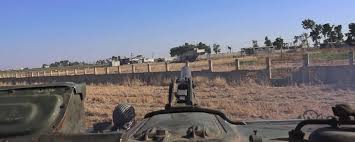With the fall of of Raqqa and Mosul, the rest of the Jihadi world is in fierce competition to become the successor to ISIS. The three major groups competing are the Taliban, Al Qaeda, and what remains of ISIS. We are seeing increased attacks in Afghanistan, as each group tries to demonstrate their capacity.
All have ambitions to demonstrate their ability to conduct aggressive attacks in new places to demonstrate widening reach. The destabilized areas of the world are clearly attractive places to recruit lone wolf attackers and those who support the underlying fundamentalist ideology. Following the battle in Ghouta, the southern part of Syria is ripe for this kind of attack.
At the same time, the southern part of Syria is of great concern to both Jordan and Israel, from a security perspective as they both share borders. The Jordanian priority is to avoid chaos and to ensure the success of the de-escalation deal as any instability in this area will have direct security implications for Jordan. The Israelis want to avoid Iranian or Hezbollah presence in the region and appears to be willing to take serious measures to ensure this happens. This means there is a great risk of conflict and violence in this area through various potential interventions.
For the Syrian army and its allies, securing Ghouta was a major win as it is key to the security of Damascus by creating a buffer between it and the southern areas of the country. The Syrian Army will likely avoid any scenario that drains resources without achieving a serious win, so they are unlikely to move south to Daraa at this point.
While the official channel of communication between Amman and Damascus are closed then there appears to be little value for the Syrians to expend the resources to recapture Daraa and the Nassib border, even though they want to regain as much territory as they can. Despite this, there is a risk for the Syrians if large tracts of the country are not controlled centrally, as a political solution that may arise is a federated model, which also gives the Kurds some autonomy.
This area is a real risk for Jordan, and Jordanian diplomacy should focus on ensuring that the relevant stakeholders are managed such that this area remains stable, whatever the solution. It is a delicate situation with various agendas, especially when places like the Ruqqban refugee camp attracts terrorists seeking shelter, or even instability inside these refugee camps as civilians try to remain safe and protect themselves.
Dr. Amer Al Sabaileh

